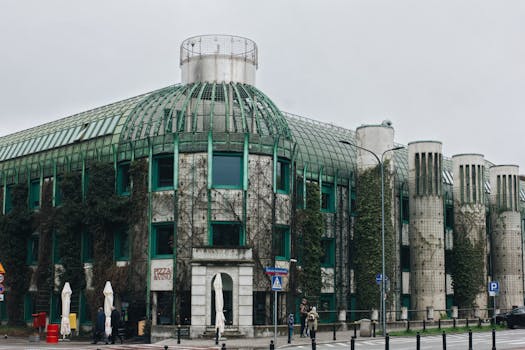
Sustainable Cities: How Europe is Shaping Eco-Friendly Lifestyles by 2025
Sustainable Cities is becoming increasingly important as the world grapples with the challenges of climate change, pollution, and resource depletion. Europe is at the forefront of this movement, with many of its cities taking bold steps to create eco-friendly lifestyles and reduce their environmental footprint. In this article, we will explore the ways in which European cities are shaping sustainable lifestyles and what we can learn from their experiences.
Introduction to Sustainable Cities
Sustainable cities are designed to minimize their impact on the environment, while also improving the quality of life for their citizens. This is achieved through a combination of green infrastructure, renewable energy, and innovative urban planning. European cities such as Copenhagen, Stockholm, and Barcelona are leading the way in sustainable development, with a focus on creating healthy, resilient, and adaptable cities.
Green Infrastructure and Transportation
One of the key components of sustainable cities is green infrastructure, which includes parks, gardens, and green roofs. These spaces not only provide habitats for wildlife and help to mitigate the urban heat island effect, but also offer recreational spaces for citizens. European cities are also investing heavily in sustainable transportation systems, such as electric and hybrid buses, trams, and bike-sharing schemes. For example, the city of Copenhagen has implemented a comprehensive bike-sharing system, with over 100 stations and 1,500 bikes available for citizens to use.
Renewable Energy and Energy Efficiency
Renewable energy is another crucial aspect of sustainable cities, with many European cities investing in solar, wind, and hydro power. The city of Stockholm, for example, has set a target of becoming carbon neutral by 2040, with a focus on renewable energy and energy efficiency. The city has implemented a range of initiatives, including district heating systems, solar panels, and energy-efficient buildings. Similarly, the city of Barcelona has implemented a smart grid system, which allows for real-time monitoring and management of energy distribution.
Waste Management and Recycling
Effective waste management and recycling are essential components of sustainable cities. European cities are implementing innovative waste management systems, including recycling programs, composting schemes, and waste-to-energy facilities. For example, the city of Vienna has implemented a comprehensive recycling program, with a focus on reducing waste and increasing recycling rates. The city has also implemented a pay-as-you-throw system, which encourages citizens to reduce their waste output.
Conclusion
In conclusion, European cities are leading the way in sustainable development, creating eco-friendly lifestyles and reducing their environmental footprint. By investing in green infrastructure, renewable energy, and innovative urban planning, these cities are providing a model for sustainable development that can be replicated around the world. As we move towards 2025, it is essential that we continue to prioritize sustainable development and create cities that are healthy, resilient, and adaptable for future generations.




